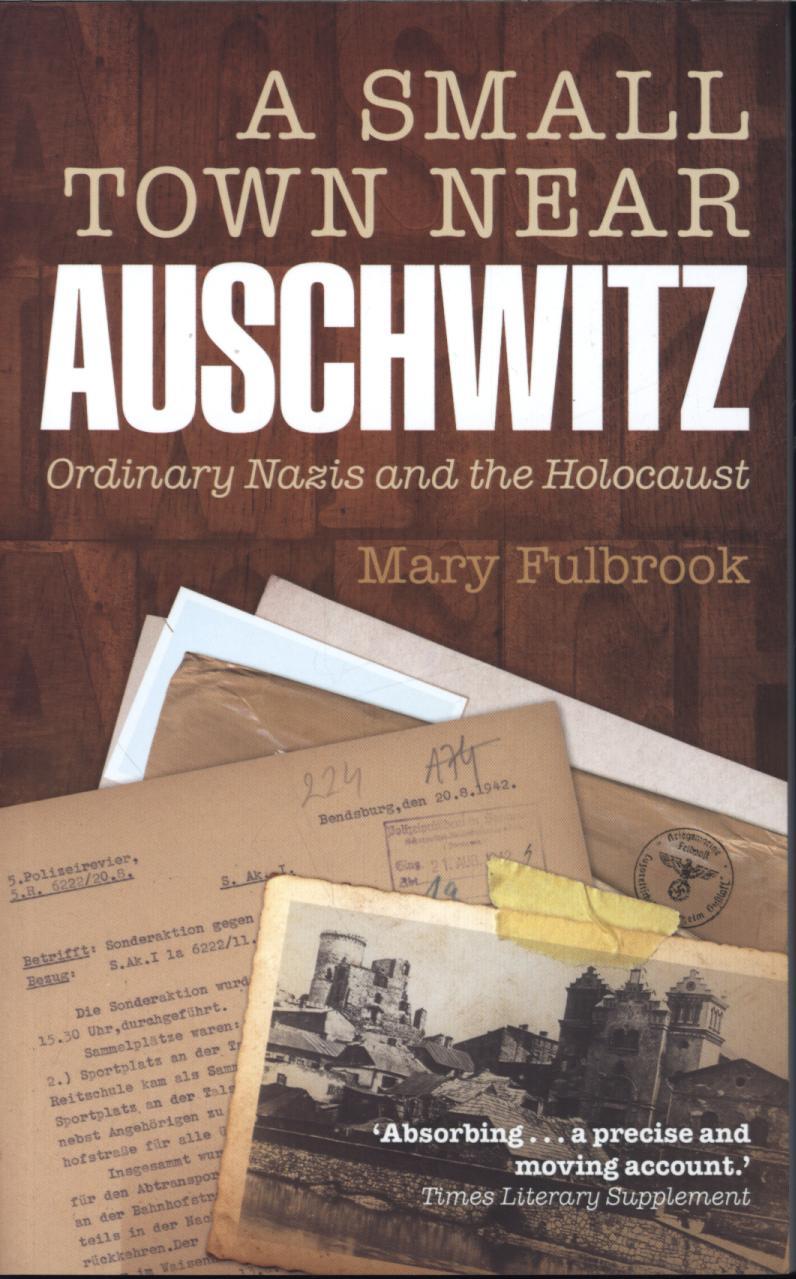Small Town Near Auschwitz

Small Town Near Auschwitz
The principal civilian administrator of Bedzin, Udo Klausa, was a happily married family man. He was also responsible for implementing Nazi policies towards the Jews in his area - inhumane processes that were the precursors of genocide. Yet he later claimed, like so many other Germans after the war, that he had 'known nothing about it'; and that he had personally tried to save a Jew before he himself managed to leave for military service. A Small Town Near Auschwitz re-creates Udo Klausa's
story. Using a wealth of personal letters, memoirs, testimonies, interviews and other sources, Mary Fulbrook pieces together his role in the unfolding stigmatization and degradation of the Jews under his authoritiy, as well as the heroic attempts at resistance on the part of some of his victims. She also
gives us a fascinating insight into the inner conflicts of a Nazi functionary who, throughout, considered himself a 'decent' man. And she explores the conflicting memories and evasions of his life after the war.
But the book is much more than a portrayal of an individual man. Udo Klausa's case is so important because it is in many ways so typical. Behind Klausa's story is the larger story of how countless local functionaries across the Third Reich facilitated the murderous plans of a relatively small number among the Nazi elite - and of how those plans could never have been realized, on the same scale, without the diligent cooperation of these generally very ordinary administrators. As Fulbrook shows,
men like Klausa 'knew' and yet mostly suppressed this knowledge, performing their day jobs without apparent recognition of their own role in the system, or any sense of personal wrongdoing or remorse - either before or after 1945.
This account is no ordinary historical reconstruction. For Fulbrook did not discover Udo Klausa amongst the archives. She has known the Klausa family all her life. She had no inkling of her subject's true role in the Third Reich until a few years ago, a discovery that led
PRP: 191.90 Lei
Acesta este Prețul Recomandat de Producător. Prețul de vânzare al produsului este afișat mai jos.
153.52Lei
153.52Lei
191.90 LeiLivrare in 2-4 saptamani
Descrierea produsului
The principal civilian administrator of Bedzin, Udo Klausa, was a happily married family man. He was also responsible for implementing Nazi policies towards the Jews in his area - inhumane processes that were the precursors of genocide. Yet he later claimed, like so many other Germans after the war, that he had 'known nothing about it'; and that he had personally tried to save a Jew before he himself managed to leave for military service. A Small Town Near Auschwitz re-creates Udo Klausa's
story. Using a wealth of personal letters, memoirs, testimonies, interviews and other sources, Mary Fulbrook pieces together his role in the unfolding stigmatization and degradation of the Jews under his authoritiy, as well as the heroic attempts at resistance on the part of some of his victims. She also
gives us a fascinating insight into the inner conflicts of a Nazi functionary who, throughout, considered himself a 'decent' man. And she explores the conflicting memories and evasions of his life after the war.
But the book is much more than a portrayal of an individual man. Udo Klausa's case is so important because it is in many ways so typical. Behind Klausa's story is the larger story of how countless local functionaries across the Third Reich facilitated the murderous plans of a relatively small number among the Nazi elite - and of how those plans could never have been realized, on the same scale, without the diligent cooperation of these generally very ordinary administrators. As Fulbrook shows,
men like Klausa 'knew' and yet mostly suppressed this knowledge, performing their day jobs without apparent recognition of their own role in the system, or any sense of personal wrongdoing or remorse - either before or after 1945.
This account is no ordinary historical reconstruction. For Fulbrook did not discover Udo Klausa amongst the archives. She has known the Klausa family all her life. She had no inkling of her subject's true role in the Third Reich until a few years ago, a discovery that led
Detaliile produsului









